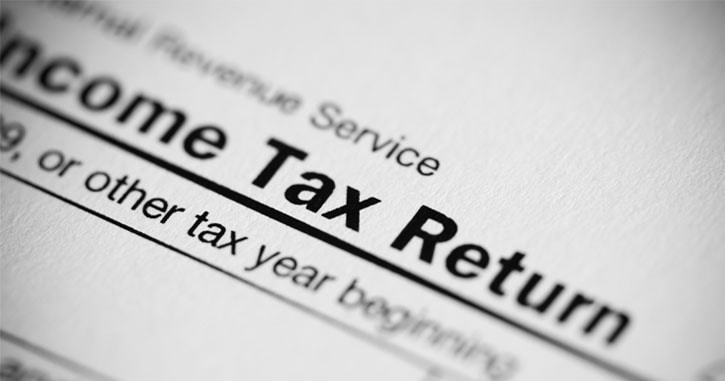5 Reasons Why a Credit Freeze Isn’t Enough to Help Protect Against Identity Theft

When a data breach happens, it’d be great if you could simply prevent identity theft with a credit freeze. The truth is, nothing can prevent identity theft, although there are things you can do to help protect against it.
Still, with identity thieves taking aim at everything from tax refunds to bank accounts, it’s worth asking the question: “Is a credit freeze a good idea?
It can be. But it may not be enough. Here’s why.
When your personal information is exposed in a data breach, you could face a greater chance of becoming a victim of identity theft. More of your information could be out there. And if it is, it might be for sale on the dark web for criminals to acquire.
No one wants their personal information stolen in a data breach. But if it happens to you, you’ll probably want to do whatever you can to help protect yourself against identity theft.
What a credit freeze does
A lot of experts, including the U.S. Federal Trade Commission, say you should consider ordering a credit freeze if your data has been accessed in a breach.
What is a credit freeze? A credit freeze “freezes” your credit report. That means potential creditors can’t access your credit report and makes it more difficult for an identity thief to open new accounts in your name.
Even so, the answer to the question “Is a credit freeze enough to help protect you against identity theft?” is still no. A credit freeze won’t prevent an identity thief from making charges to your existing accounts.
A credit freeze provides some protection, but you may be at risk for several kinds of identity theft, including tax-related identity theft.
Hacks of Social Security numbers can heighten your risks
Identity thieves can use your personal information in a variety of ways to commit identity fraud—and not just by opening new accounts in your name. Often, it depends on the nature of a breach and what personal information has been exposed.
Consider the Equifax data breach, made public in September 2017. Cyber thieves hacked the credit reporting company’s database and potentially accessed records of more than 145 million Americans. Social Security numbers—the key to many personal-finance moves—were included in the haul.
High-profile hacks like the Equifax data breach are only part of the story. In 2017, there were 8,190 data breaches, according to the Identity Theft Resource Center. That could open more doors to commit fraud.
A credit freeze does some things well, but not all. Here are a few reasons why a credit freeze isn’t enough to protect against identity theft.
5 reasons why a credit freeze isn’t enough
Your Social Security number is one of the most important identifiers in your financial life. You need it when you pay your taxes or sign up for health insurance. It’s attached to some of your key financial accounts.
When a thief gets access to your Social Security number and other pieces of your personal information, you could be vulnerable in ways that a credit freeze won’t help. Here are five reasons why.
1. Existing accounts remain at risk even with a credit freeze
You might have a variety of existing financial accounts, including ones with a bank, brokerage, or credit card company. But what if data thieves have enough information to access those accounts? Remember, a credit freeze helps prevent identity thieves from opening new accounts. But thieves still may be able to access your existing accounts. You’ll need to monitor those accounts for fraudulent transactions. Once again, a credit freeze can’t help prevent identity theft.
2. A credit freeze won’t help protect against medical identity theft
If an identity thief has your Social Security number and other personal information, it could lead to medical identity theft. The risk? An imposter could obtain medical care or prescription drugs in your name. As a result, you might be refused medical care because someone has used up your health care benefit. That’s not all. If the bills are sent somewhere else and go unpaid, it could hurt your credit.
3. A credit freeze has no effect on employment identity theft
An identity thief may use your Social Security number to get a job. The employer will likely report income to the IRS under your name and Social Security number. This could make it appear that you didn’t report all your income on your tax return. This could lead to a notice from the IRS.
4. Tax-related identity theft can snag your refund despite a credit freeze
When tax season arrives, criminals can use your Social Security number and other personal information to commit tax-related identity theft. Tax-related identity theft occurs when someone uses your stolen Social Security number to file a tax return claiming a fraudulent refund. The IRS offers a tip to help protect against tax-related identity theft: File you taxes early, before an identity thief files them for you.
5. Identity-theft risks can rob you of your time
Not surprisingly, a credit freeze won’t help you regain the time you spend fixing an identity theft issue. For instance, a typical case of tax-identity fraud can take about 180 days to resolve, according to the IRS. While a lot of that time is spent waiting for the agency’s investigation and resolution of your case, you will spend time letting the IRS know about the situation and answering any questions they may have.
It’s smart to know what a credit freeze can, and can’t, do to help protect against identity theft. Other defensive measures include fraud alerts, credit monitoring, and identity theft protection services.
It’s true: Nothing can prevent identity theft, and, in some cases, a credit freeze can help.
Editor’s note: This content was lightly edited and updated on March 30, 2018.
Editor’s note: Our articles provide educational information. LifeLock offerings may not cover or protect against every type of crime, fraud, or threat we write about.
This article contains
Related articles
Start your protection,
enroll in minutes.
Copyright © 2025 Gen Digital Inc. All rights reserved. All trademarks, service marks, and tradenames (collectively, the "Marks") are trademarks or registered trademarks of Gen Digital Inc. or its affiliates ("Gen") or other respective owners that have granted Gen the right to use such Marks. For a list of Gen Marks please see GenDigital.com/trademarks.



